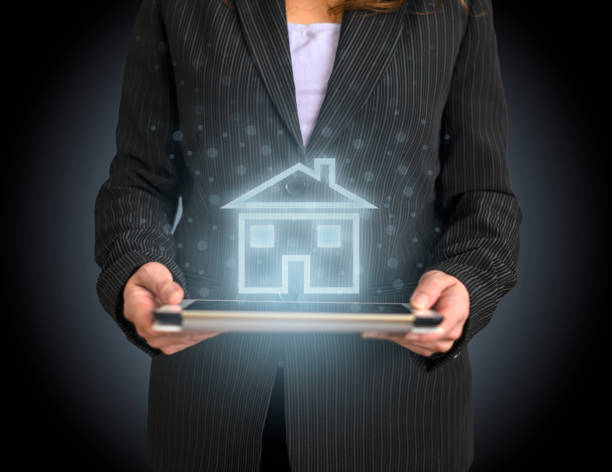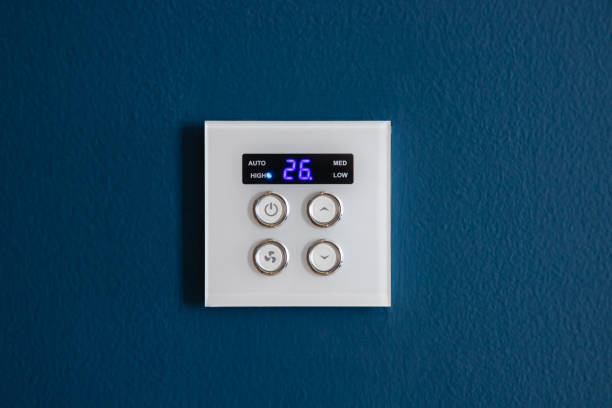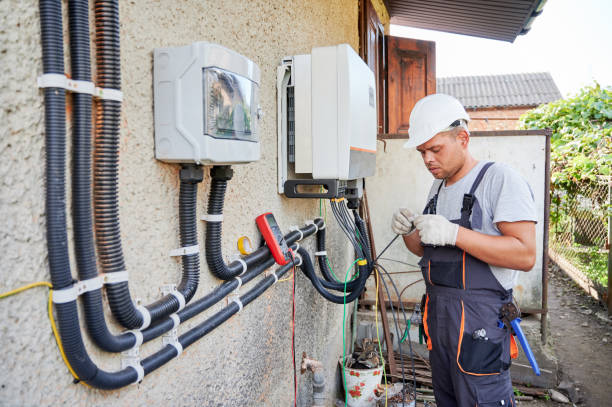Upgrading your home’s electrical system is an important part of ensuring the safety and efficiency of your home. New Zealand homeowners should consider making several upgrades to their electrical systems, including electrical panel and switchboard upgrades, installing innovative home technologies, house rewiring, and investing in solar power. Doing so can help you save on energy costs while improving the overall safety of your home.
These upgrades can be complex and costly, but they are necessary for maintaining a safe and efficient electrical system. By understanding what needs to be done and performing these upgrades correctly, you can make sure that your home is up-to-date with the latest technologies and standards in electricity usage. Not only will these upgrades help keep your family safe but also save energy costs in the long run. With these improvements, you’ll be able to enjoy greater peace of mind knowing that your home is powered by a modern, efficient system.

Upgrading Your Electrical Panel:
Upgrading your electrical panel is a smart investment for the safety and efficiency of your home. An outdated or overloaded panel can be a safety hazard and cause frequent power outages. By upgrading to a modern panel, you can ensure that your home’s electrical system is running optimally, reducing the chances of any electrical problems or hazards.
Furthermore, a modern panel can improve the overall efficiency of your home’s electrical system by providing more power for all your circuits. When choosing an upgrade panel, you should consider both its size and type, as choosing the right one will depend on how much energy you need and how many circuits you have in your home. Before beginning any work on an upgrade panel, it’s important to contact an experienced electrician who can make sure that all safety protocols are followed. It is not only a great way to improve the safety of your home but also to increase energy efficiency and reliability while preventing frequent power outages.
Benefits of Upgrading to a Modern Panel Include:
- Increased capacity, allowing you to add new circuits or appliances without overloading the system. This is particularly important if you’re planning to add new appliances or devices to your home, such as a new air conditioner, electric vehicle charging station, or hot tub.
- Better circuit protection, which can prevent electrical fires and power outages. This can be achieved by installing new circuit breakers, which are designed to trip when they detect an overload or short circuit, thus protecting your home and appliances from damage.
- Improved safety and functionality, giving you greater control over your home’s electrical system. Modern electrical panels come with various features, such as surge protection, ground fault circuit interrupters, and arc fault circuit interrupters, which can provide additional protection for your home and appliances.
Upgrading Your Switchboard:
Upgrading your switchboard is an important step to ensure the safety and efficiency of your home’s electrical system. By switchboard or fuse box upgrade, you can add additional safety features and improve circuit protection, as well as increase capacity and reliability. It also helps reduce the risk of a fire hazard posed by an outdated switchboard.
When shopping for a new switchboard, look for one that offers features such as circuit breakers, surge protection, overload protection, and individual circuit metering. Make sure to find one that meets all local codes and regulations so that it is approved for use in your home. Consider investing in a modern switchboard with advanced technologies like automated monitoring systems that can alert you to any potential problems with your electrical system.
Installing a new switchboard may require the expertise of an electrician or contractor who is properly trained and licensed to do this type of work; always verify their qualifications before hiring them. Upgrading your switchboard can be a worthwhile investment in both safety and energy efficiency for your home.

Benefits of Upgrading to a Modern Switchboard Include:
- Additional safety features, such as overcurrent protection, earth leakage protection, and surge protection can prevent electrical fires and power outages.
- Increased capacity, allowing you to add new circuits or appliances without overloading the system. This is particularly important if you’re planning to add new appliances or devices to your home, such as a new air conditioner, electric vehicle charging station, or hot tub.
- Improved reliability, as modern switchboards are designed to withstand power fluctuations and other electrical issues, which can prolong the life of your electrical system.
- Better circuit protection can help prevent electrical fires and power outages.
- It’s important to note that when upgrading your switchboard, it’s also important to ensure that your home’s wiring is up to date and in good condition. Old or damaged wiring can be a fire hazard and should be replaced as part of the upgrade.
Installing Smart Home Technologies:
Smart home technologies can enhance your home’s electrical system and improve your daily living. These technologies allow you to control and monitor various aspects of your home’s electrical system remotely, through a smartphone or tablet. Some popular smart home technologies include:
- Smart lighting, which allows you to control and schedule your lights remotely. This can help you save energy and improve the security of your home, as you can set lights to turn on and off at specific times, even when you’re not home.
- Smart power outlets, allow you to control and schedule your appliances remotely. This can help you save energy and prolong the life of your appliances, as you can set them to turn off when not in use.
- Smart thermostats, allow you to control your home’s temperature remotely and save energy. This can help you save money on heating and cooling costs, and improve the comfort of your home.
- Smart security systems, allow you to monitor your home’s security remotely. This can give you peace of mind and help you protect your home from burglaries and other security threats.

Benefits of Smart Home Technologies include:
- Energy savings include scheduling your lights and appliances to turn off when not in use. This can help you save money on your energy bills and reduce your carbon footprint.
- Increased convenience, as you can control various aspects of your home’s electrical system from anywhere. This can make your home more comfortable and easy to live in.
- Remote control and monitoring, give you greater control and peace of mind. You can monitor your home’s security, energy usage, and other aspects of your home’s electrical system from anywhere.
- Improved security, as you can monitor your home’s security remotely. This can help you protect your home from burglaries and other security threats.
Replacing Old Wiring:
Replacing old wiring is an important step in maintaining a safe and efficient home electrical system. Upgrading to new wiring not only improves the safety of your home but can also increase the efficiency and reliability of your electrical system. Newer wiring has improved insulation and fire-resistant materials which make them much safer than older versions, while also reducing energy losses which can lead to higher electricity bills. Additionally, new wires are less susceptible to corrosion or damage which can cause short circuits or power outages.
A professional electrician can help you determine if your wiring needs to be replaced based on its age or condition and install new wiring that is up to code with local regulations. Replacing old wiring is an important task that should not be overlooked, as it provides safety, efficiency, and reliability for your home’s electrical system.

Benefits of Replacing Old Wiring include:
- Improved performance, as new wiring, is designed to handle more power and provide more efficient electrical flow
- Increased efficiency, as new wiring, is less likely to develop shorts or corrode, which can cause power outages and increase energy costs
- Enhanced safety, as new wiring is less likely to cause electrical fires or other hazards.
Upgrading to Solar Power:
Upgrading to solar power can help reduce your energy costs and decrease your carbon footprint. There are two main types of solar power systems available: grid-tied and off-grid systems. A grid-tied system is connected to the power grid and allows you to sell any excess power back to the grid. An off-grid system is not connected to the power grid and requires battery storage.

Important considerations for upgrading to Solar Power:
- Assessing your energy needs: Before upgrading to solar power, it’s important to determine how much energy you use and what your energy needs are. This will help you choose the right solar power system for your home.
- Choosing the right solar power system: There are a variety of solar power systems available, including grid-tied and off-grid systems. Each type has its advantages and disadvantages, and it’s important to choose the right one for your home.
- Installing the solar panels and equipment: Once you’ve chosen the right solar power system for your home, the next step is to install the solar panels and equipment. This should be done by a professional, as it requires specialized knowledge and equipment.
- Connecting to the grid or battery storage: If you choose a grid-tied system, you’ll need to connect your solar power system to the power grid. If you choose an off-grid system, you’ll need to install battery storage to store the electricity generated by your solar panels.
- Monitoring and maintaining the system: Once your solar power system is installed, it’s important to monitor and maintain it to ensure it’s running efficiently and effectively. This includes regular cleaning of the solar panels, checking the wiring and connections, and monitoring the performance of the system.
Benefits of upgrading to solar power include:
- You are reducing energy costs, as you can generate your electricity and reduce your reliance on the power grid.
- Decreasing your carbon footprint, as solar power is a clean and renewable energy source.
- Increasing the value of your home, as solar power systems are becoming increasingly popular and can be a selling point for potential buyers.
- Enhancing energy independence, as you can generate your electricity and reduce your dependence on the power grid.
- Lowering electricity bills by reducing reliance on a utility company
- Solar power systems require minimal maintenance
- Government incentives and rebates may be available for solar power systems
- It is a sustainable and environmentally friendly energy source
- The potential of reducing strain on the power grid
- Increases property value
- It can work in remote locations where the grid connection is not possible
- Reducing dependence on fossil fuels.
Conclusion:
Upgrading your home’s electrical system is a great way to improve efficiency, increase convenience, and keep your family safe. An upgrade can involve anything from replacing old wiring to installing smart home technologies. Regardless of the type of improvements you are looking to make, it is important to consult a qualified professional who can assess your needs and guide you in the right direction.
Whether it’s upgrading your electrical panel, or switchboard or even upgrading to a solar power setup, this could be just what you need to take your home into the modern era! So why not take that leap today and see how upgrading your home’s electrical system can benefit you? At Strike Electrical, we’d love to help – so reach out and let us know what type of electrical upgrade you need!
FAQs
What are the benefits of upgrading my home’s electrical system?
Upgrading your home’s electrical system can improve the overall safety and efficiency of your home, and can save you money in the long run. From upgrading your electrical panel and switchboard to installing smart home technologies and replacing old wiring, to upgrading to solar power, these upgrades can provide many benefits such as reducing energy costs, enhancing energy independence, increasing the value of your home, and more.
How do I know if my home’s electrical system needs an upgrade?
There are several signs that your home’s electrical system may need an upgrade, including frequent power outages, flickering lights, outdated or overloaded electrical panels, outdated switchboards, old or damaged wiring, and difficulty adding new appliances or devices to your home. If you notice any of these signs, it’s important to have a professional inspect your home’s electrical system.
What are the different types of solar power systems available?
There are two main types of solar power systems available: grid-tied and off-grid systems. A grid-tied system is connected to the power grid and allows you to sell any excess power back to the grid. An off-grid system is not connected to the power grid and requires battery storage. It’s important to consult with a professional and determine which system is best for your home and energy needs.
How do I maintain my solar power system?
Regular maintenance is crucial for keeping your solar power system running efficiently and effectively. This includes cleaning the solar panels, checking the wiring and connections, and monitoring the performance of the system. It’s important to have a professional inspect your solar power system at least once a year to ensure it’s working properly and identify any potential issues.
Are there any Government incentives or rebates available for upgrading my home’s electrical system?
Yes, there may be government incentives or rebates available for upgrading your home’s electrical system. These incentives and rebates vary by country and state. It’s important to research and find out what incentives and rebates are available in your area before upgrading your home’s electrical system

 info@strike.net.nz
info@strike.net.nz

